Signe Rätsep
Chief Specialist of the Legal Information and Judicial Training Department of the Supreme Court
Statistics[1] on the work of the Supreme Court are collected based on requests for proceedings and matters reviewed. Data on matters reviewed and requests for proceedings are collected in three types of court proceedings: civil court, administrative court and offence proceedings. In constitutional review proceedings, data are gathered regarding the matters reviewed.Requests for proceedings are considered to include appeals in cassation, appeals against court rulings, applications for review, and applications for procedural aid. [2]
Review of requests for proceedings in the chambers of the Supreme Court
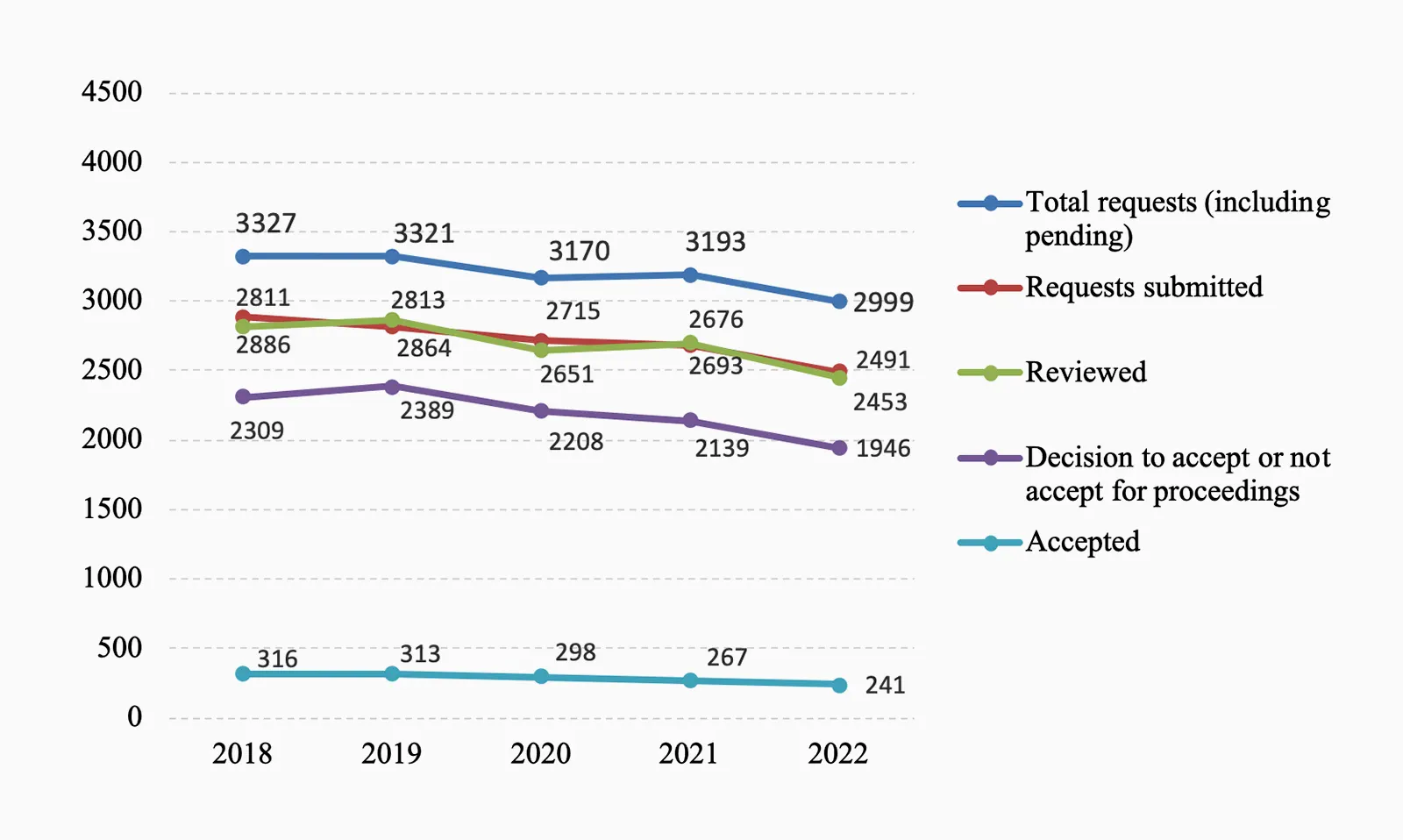
By law, the Supreme Court is empowered to decide whether or not to process requests for proceedings for ensuring the lawfulness of decisions made by a lower court, harmonization of judicial practice or further development of procedural law.
In 2022, of all requests on which the Supreme Court decided on acceptance or rejection, 12% (241 of 1946 requests) were accepted. For comparison: In 2021, 12% (267 out of 2,139 requests) were also accepted, in 2020 13% (298 out of 2,208 requests), in 2019 13% (313 out of 2,389 requests) and in 2018 14% (316 out of 2,309 requests).
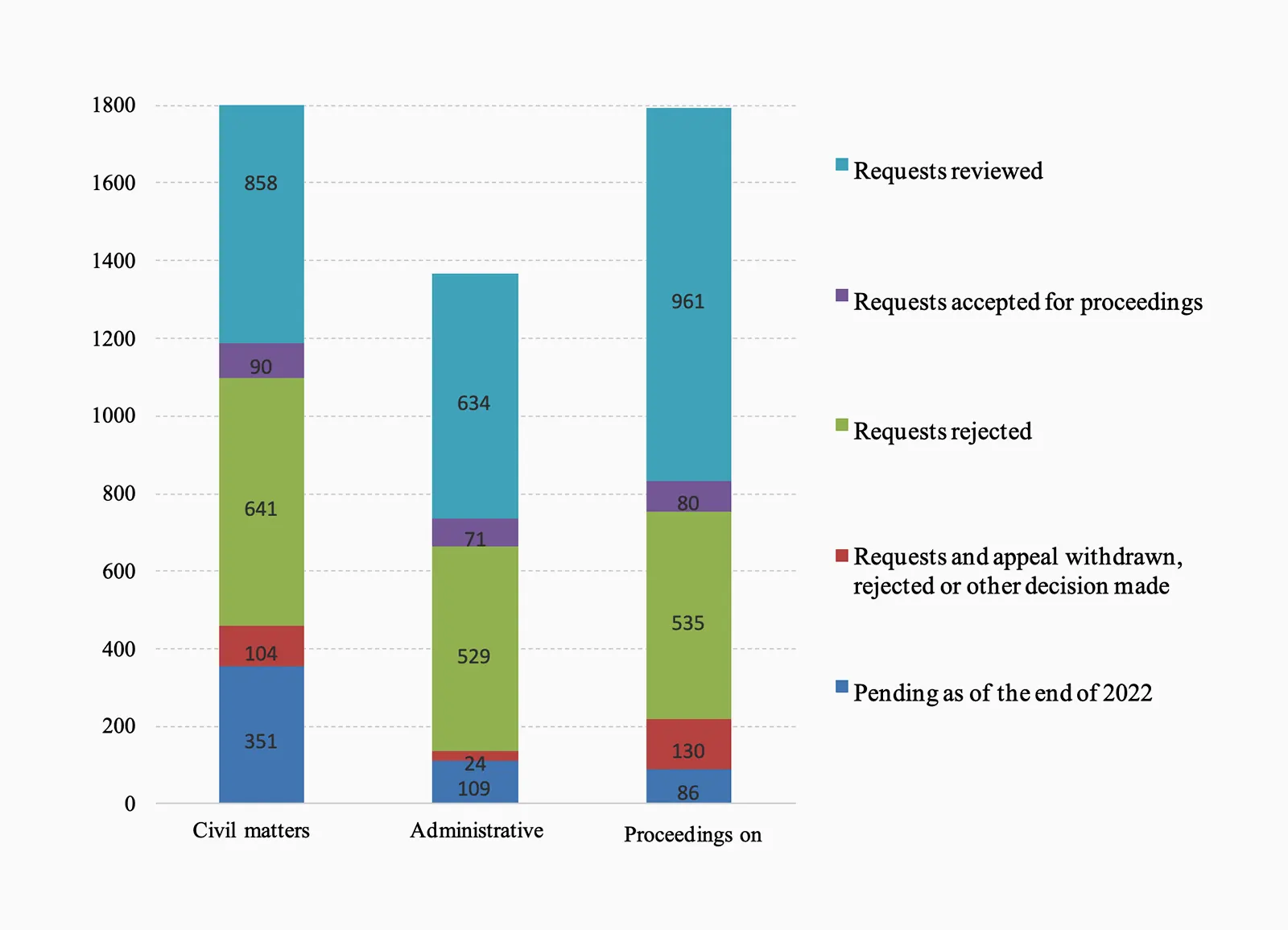
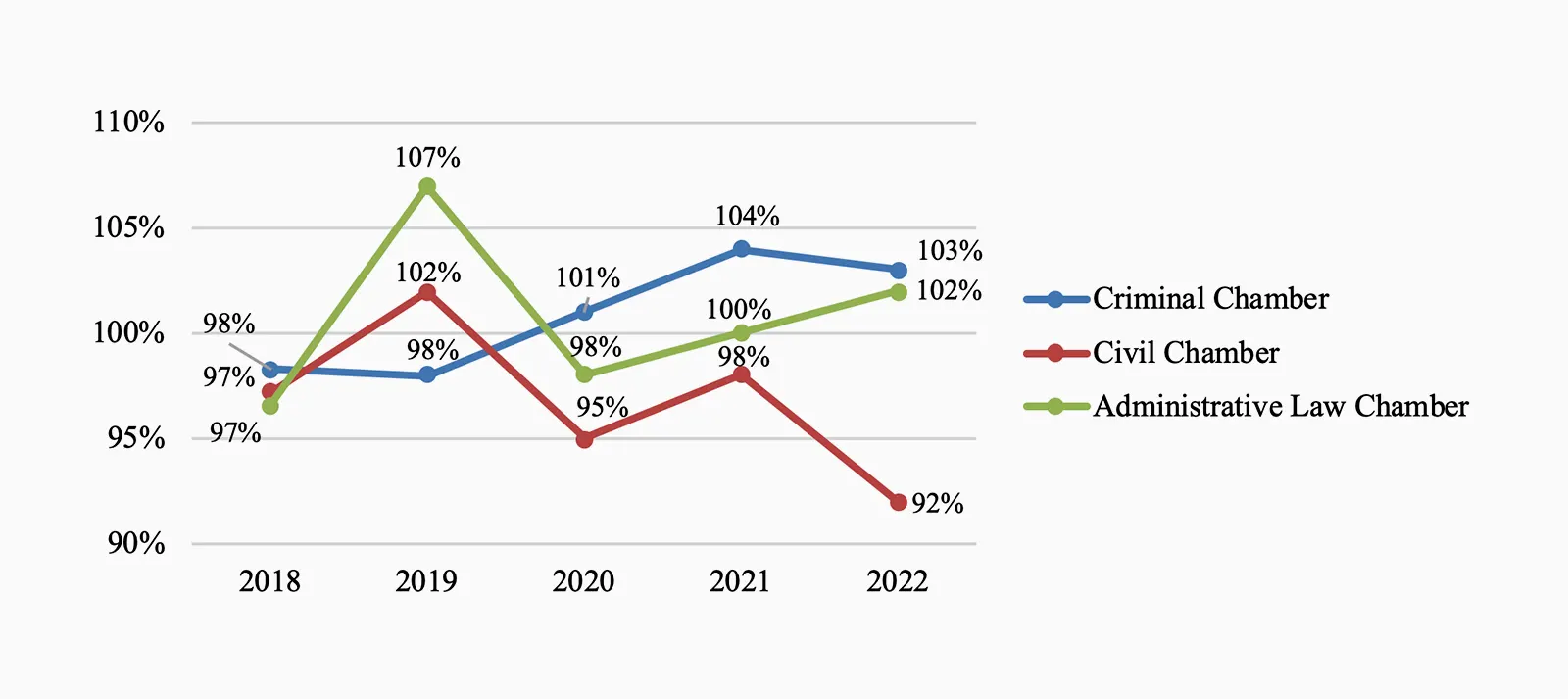
In the Civil Chamber, a total of 1,209 procedural requests were pending (1,277 in 2021), of which 935 were submitted in 2022. The chamber reviewed 858 (1,008 in 2021) applications. The decision whether to accept or reject requests was made on 731 occasions (2021: 834), of which 90 (2021: 114) applications were accepted.
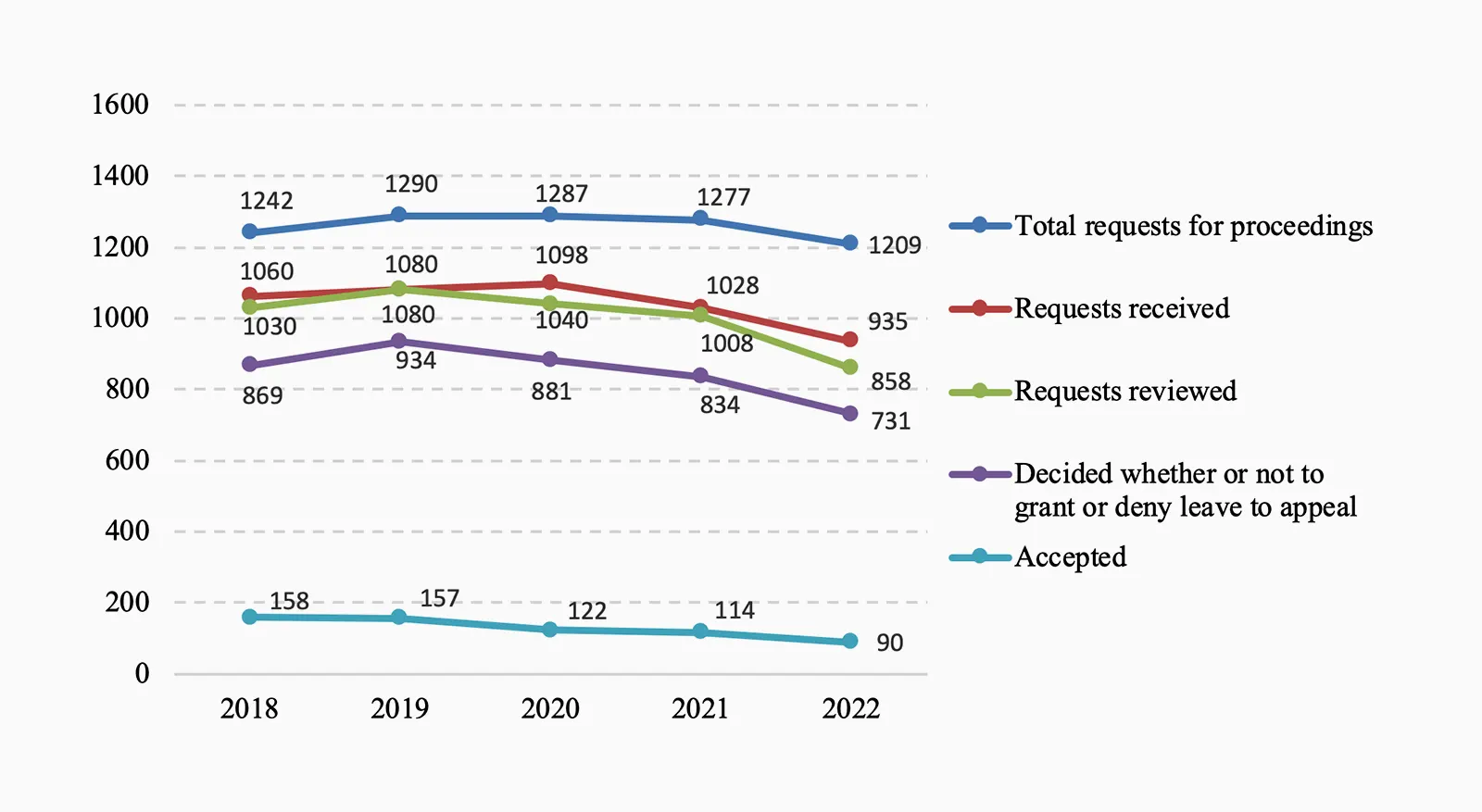
In the Administrative Law Chamber, 743 procedural requests were pending in 2022 (2021: 747), of which 622 requests for proceedings were submitted in 2022. The Administrative Law Chamber reviewed 634 (2021: 628) applications, the acceptance or non-acceptance of 600 (2021: 587) requests was decided, of which 71 (2021: 72) requests were accepted.
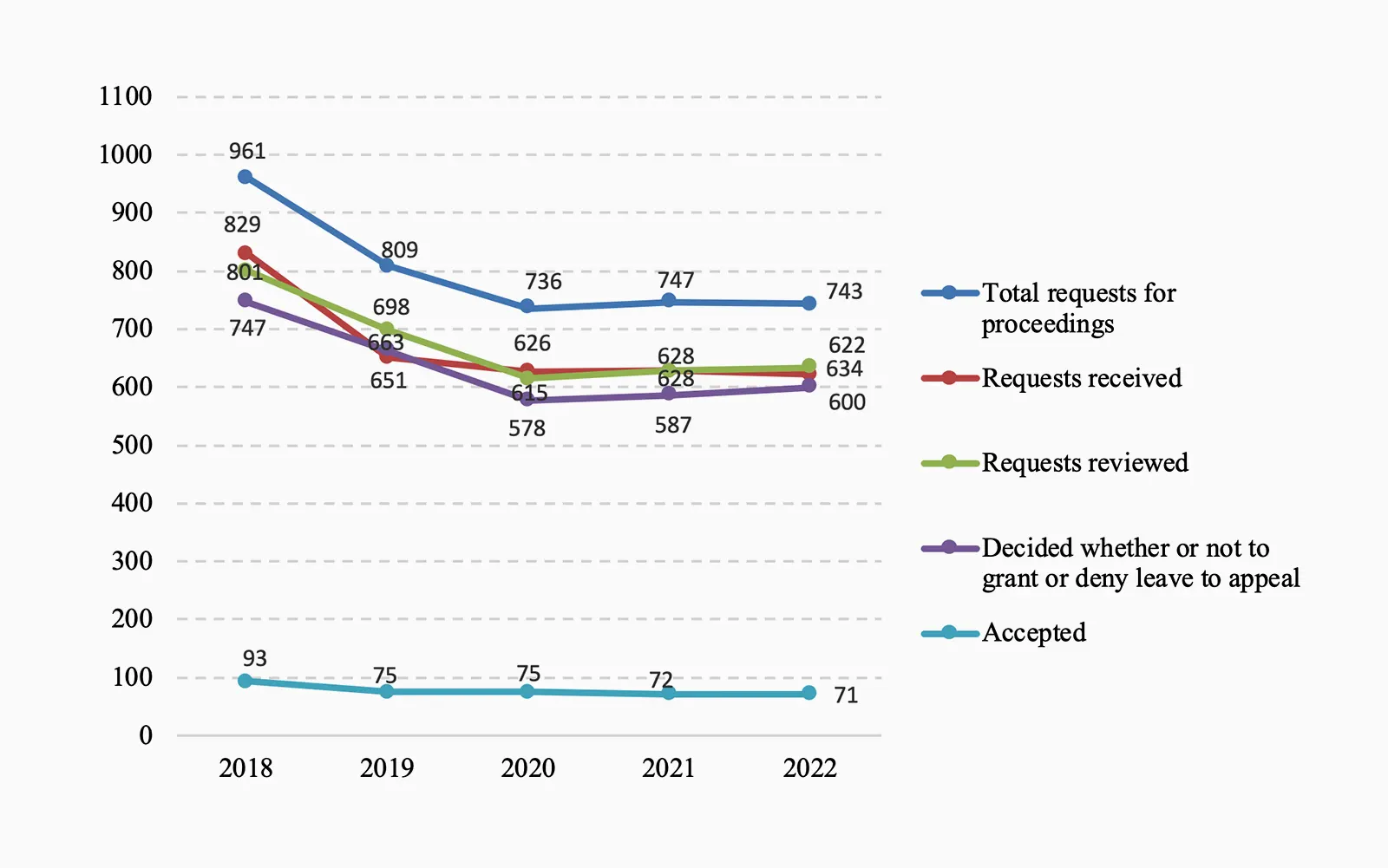
The Criminal Chamber had 1,047 requests in 2022 (2021: 1169), of which 934 requests were submitted in 2022. A total of 961 (2021: 1,057) applications were reviewed. The decision whether to accept or reject requests was made on 615 occasions (2021: 718), of which 80 (2021: 81) applications were accepted.
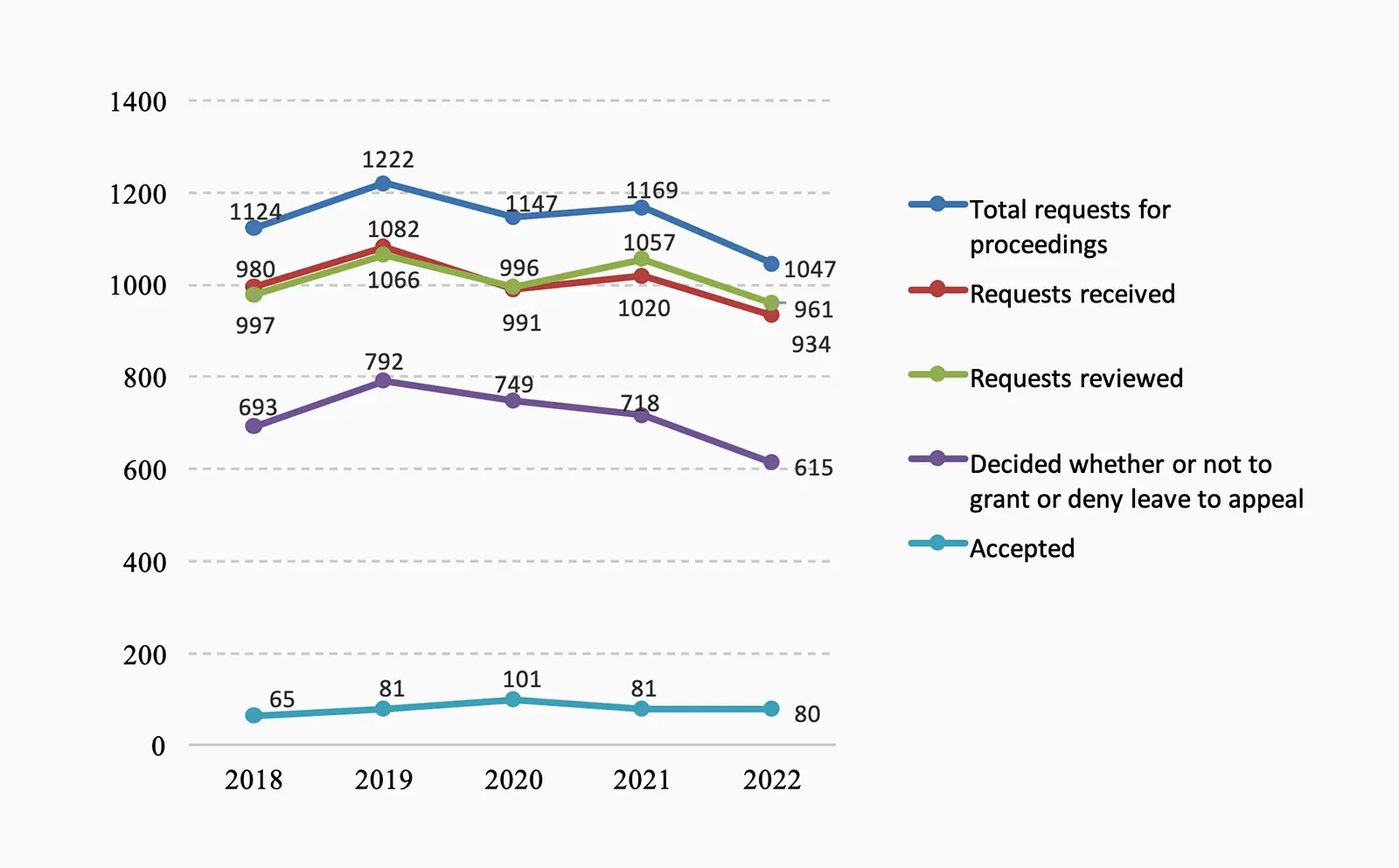
Results of review of court matters in Supreme Court chambers
Constitutional review procedure
In 2022, 12 cases were reviewed in the constitutional review procedure. The Constitutional Review Chamber adjudicated a matter on 11 occasions and on one occasion the Supreme Court adjudicated the matter en banc. In the reviewed matters, a provision of a disputed legal act was recognised as unconstitutional and invalid in four matters, four were denied and four requests or complaints were rejected without review. Table 1 provides the detailed results of matters heard under constitutional review proceedings.
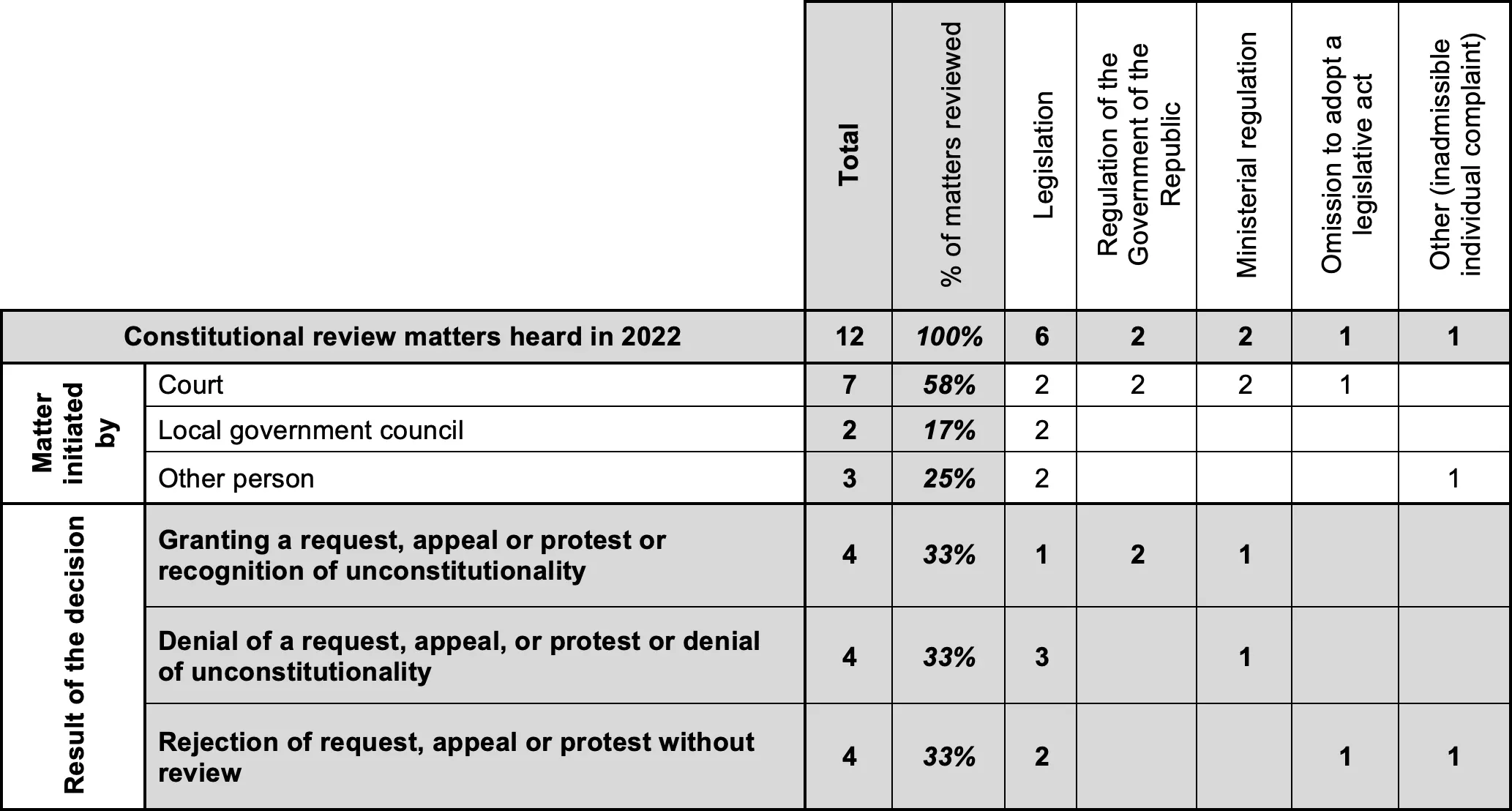
Review of court matters in the Criminal, Administrative Law and Civil Chamber
The Criminal Chamber ruled on 67 proceedings on offences: 63 of them criminal and 4 of them misdemeanours. The Civil Chamber ruled on a total of 79 matters. The Administrative Law Chamber ruled on 55 administrative matters
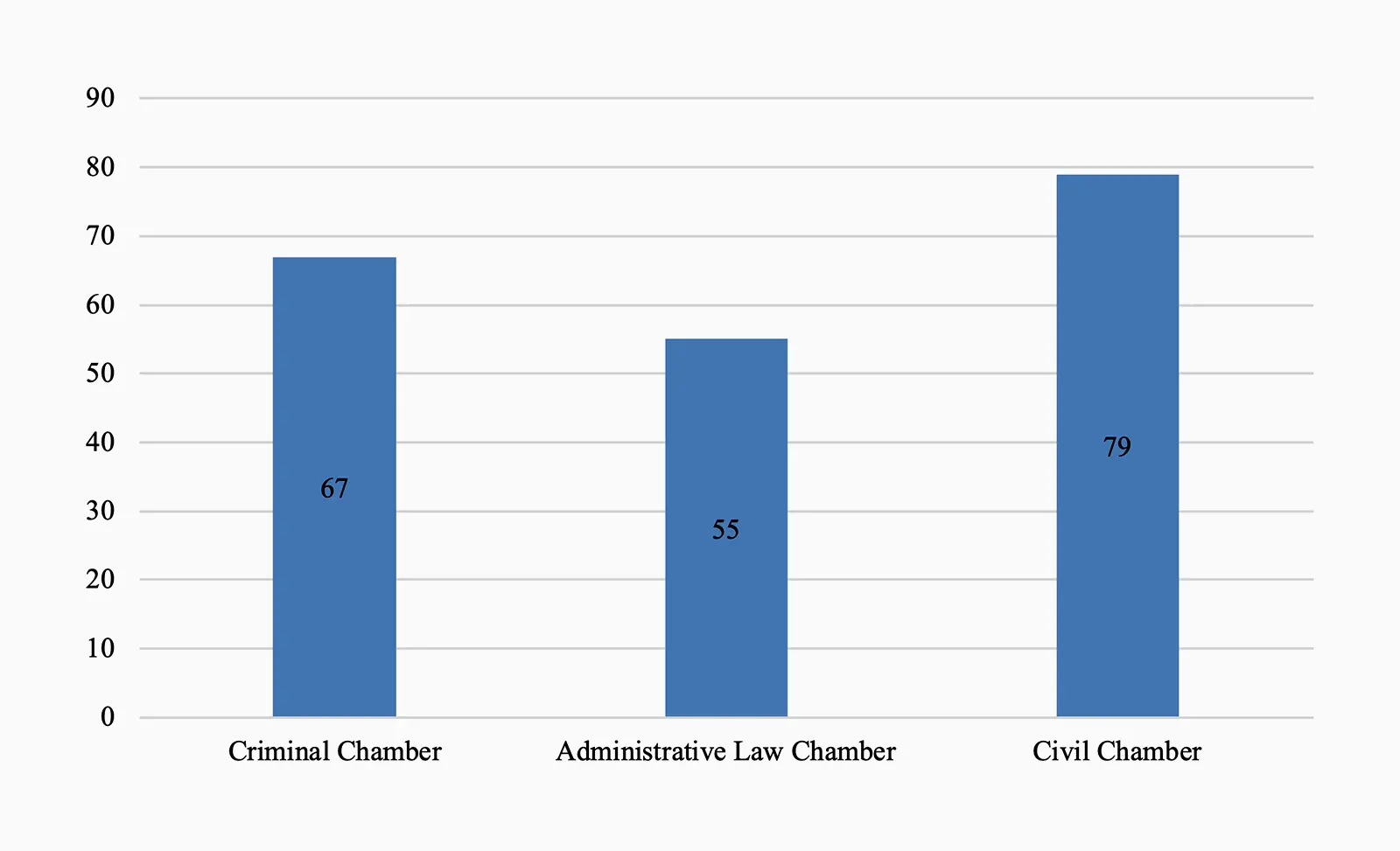
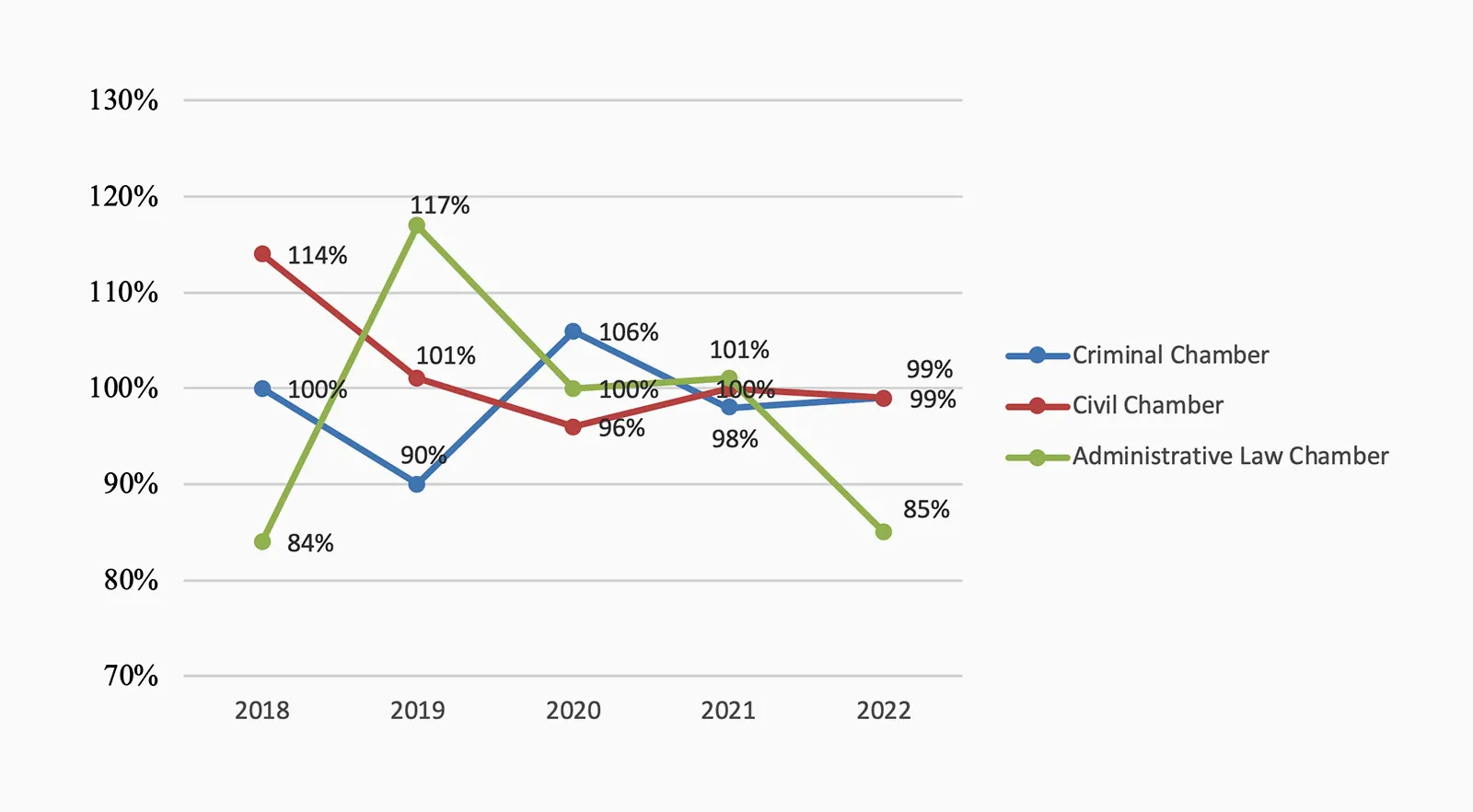
____________________________
[1] The data for 2022 have been extracted from the statistical environment of the field of law enforcement (ÕSA) as of 3 January 2023.
[2] Detailed information on procedural requests and review of matters in the Supreme Court since 1993 is available on the Supreme Court’s website https://www.riigikohus.ee/et/riigikohus/statistika .
[3] Performance – the ratio of applications reviewed during the year to the number of applications received in the same period.



